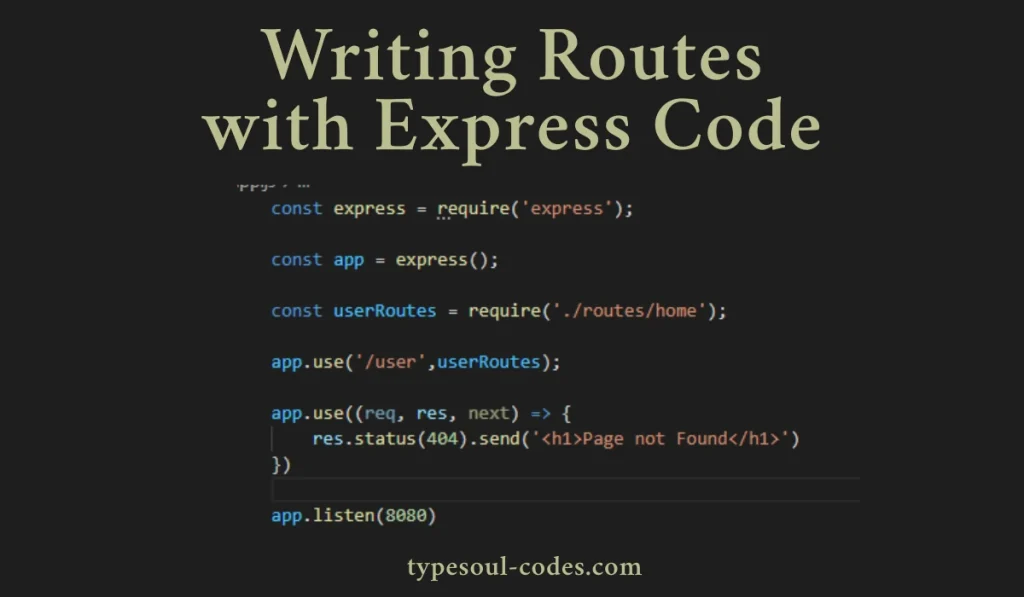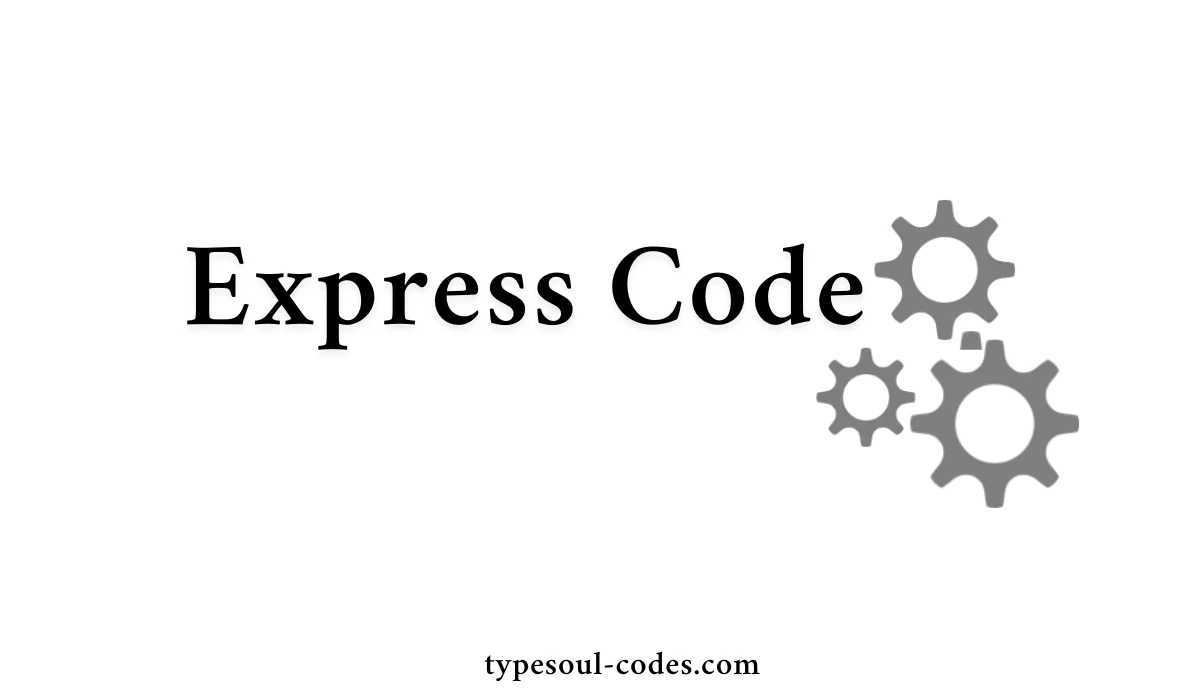If you’re someone trying to build a backend for a web application, you’ve probably come across the term Express code. In 2025, Express.js remains one of the most popular tools in the JavaScript ecosystem. Many developers use Express with Node.js to create efficient and scalable applications.
In this article, we’ll explore what express code is, how it works, and how you can write it yourself. You don’t need to be a professional coder to understand it. We’ve made this guide easy enough that even a seventh grader can follow it. Whether you’re just curious or looking to build your first project, this guide on express code has everything you need.
What Is Express Code?
Express code refers to the JavaScript code written using Express.js, a fast and lightweight web application framework built on top of Node.js. This code helps developers create servers, APIs, and web apps in a simple and structured way.
Developers use express code to make HTTP servers and route handling much easier. Instead of writing long and complex Node.js logic for basic server tasks, you can use short and clean lines of express code to do the same work. This saves time and reduces bugs in your programs.
Why Express Code Matters in 2025
In 2025, the demand for web applications continues to grow. Businesses want faster loading times and flexible backend services. That’s why most developers turn to Express.js.
Using express code means you can:
- Launch a server in under five minutes
- Easily manage API endpoints
- Handle incoming data quickly
- Reduce repetitive coding tasks
For example, an e-commerce site built with express code can process thousands of orders per day efficiently. The code manages customer data, order history, and shipping status in real time.
Read more: Can code enforcement arrest you
Setting Up Express Code on Your System
Before writing your first express code, you need to install Node.js. After that, you install Express using the command:
bashCopyEditnpm install express
Once you have Express installed, you can begin writing your code.
Here’s the most basic express code example:
javascriptCopyEditconst express = require('express');
const app = express();
app.get('/', (req, res) => {
res.send('Hello from Express!');
});
app.listen(3000, () => {
console.log('Server is running on port 3000');
});
This simple code creates a server that responds with “Hello from Express!” when you visit the root URL. It’s that easy.
Writing Routes with Express Code

Routing is one of the most important parts of backend programming. It defines how your app responds to different URLs. With express code, routing is both fast and clean.
Here’s how a simple set of routes look using express:
javascriptCopyEditapp.get('/about', (req, res) => {
res.send('About Page');
});
app.post('/submit', (req, res) => {
res.send('Data Submitted');
});
Each route has a method (GET, POST) and a path (/about, /submit). You can add more as your app grows.
Express Code vs Node Code: What’s the Difference?
Here’s a table that shows how express code compares with plain Node.js code:
| Feature | Node.js Code | Express Code |
|---|---|---|
| Server Setup | Long and manual | Short and simple |
| Routing | Needs if-else logic | Uses built-in app.get() or app.post() |
| Middleware | Needs custom writing | Built-in support |
| Learning Curve | Steeper for beginners | Easier for new coders |
As you can see, express code is much cleaner and easier to manage, especially when working on large projects.
Middleware in Express Code
Middleware functions in Express are like extra helpers that run before your final request handler. These functions can log data, check if a user is logged in, or modify the request object.
Here’s an example of middleware in express code:
javascriptCopyEditapp.use((req, res, next) => {
console.log('Middleware running');
next();
});
This line of express code logs a message every time a request hits the server. The next() function allows the request to move forward to the next part.
Express Code for APIs
APIs allow your application to talk to other programs. Express makes creating APIs very easy. With just a few lines of express code, you can build a working API.
javascriptCopyEditapp.get('/api/users', (req, res) => {
const users = [{ id: 1, name: 'John' }];
res.json(users);
});
This code will send back a JSON array of users. You can test it using a browser or a tool like Postman.
Real-World Use of Express Code in 2025
In 2025, express code powers many parts of the internet. From food delivery apps to social media platforms, companies rely on Express to create smooth backend services.
For example:
- Food delivery platforms use express code to handle user orders and restaurant menus.
- Banking apps use it to manage transactions and customer records.
- Gaming platforms use it to track scores and player activity in real time.
Express helps reduce development time while keeping the application stable and secure.
Best Practices When Writing Express Code
- Keep your routes organized in different files if the app gets large.
- Always use error handling in your routes and APIs.
- Avoid writing long functions inside the route handlers.
- Always sanitize and validate incoming data to avoid security issues.
- Use environment variables to keep sensitive data safe.
Read more: Sol de janeiro coupon code
Common Mistakes in Express Code
Beginners often forget to call the listen() method, so the server never starts. Others might skip express.json() when working with JSON data, leading to errors when parsing.
Here’s how to fix that:
javascriptCopyEditapp.use(express.json());
This line tells Express to automatically convert incoming JSON into JavaScript objects.
Frequently Asked Questions (FAQs)
What is express code used for?
Express code is used to create servers, APIs, and web apps using JavaScript.
Is express code better than Node.js code?
Express code is built on Node.js and makes coding easier and faster.
Can I use express code for large apps?
Yes. Express is used by major companies and supports big applications.
Is express code easy to learn?
Absolutely. Express is one of the easiest backend frameworks to get started with.
Conclusion
If you’re starting your backend journey or building your next big project, learning express code is a smart choice. It is simple, clean, and powerful. Express lets you do more with less code. Developers in 2025 continue to use it because it works well and scales easily.
Now that you understand the basics, go ahead and try writing your first piece of express code. Once you run your server and see that success message in your terminal, you’ll realize how easy backend development can be.

